There are so many things that divide hunters – the style of hunting, the tool they use to hunt, the animals they choose to hunt, even the reason people hunt can differ greatly. But there is one thing that every hunter has in common. Whether you grew up hunting or, like me, learned to hunt as an adult, we all started as beginners. We all had to learn to hunt.
For those of you just starting out on your hunting journey, here are five tips that could save you a lot of trial and error when you learn to hunt, no matter what your style or reason for hunting.
1. Patience is definitely a hunting virtue
 We speak about it often but one of the biggest misconceptions non-hunters have about hunting is they all seem to think it is quick and easy. In reality, the only quick thing about learning to hunt is how quickly you learn that you’re going to spend a lot of time waiting!
We speak about it often but one of the biggest misconceptions non-hunters have about hunting is they all seem to think it is quick and easy. In reality, the only quick thing about learning to hunt is how quickly you learn that you’re going to spend a lot of time waiting!
Patience is definitely a virtue when it comes to hunting. Learn to move slowly and use caution while walking, as you never know what is around the next corner.
Hunting also involves a lot of sitting and waiting. That might be sitting in a blind, waiting for an animal to come close enough for an ethical shot, sitting and glassing on the side of a hill to see where the animals are, crawling along the ground to get close enough without being spotted or smelled, waiting for an animal to turn broadside or get into the right position, or even waiting patiently for the season to open up so you can legally hunt.
The waiting game never really goes away. In fact, the longer you hunt, the more you’re willing to wait for just the right animal to come along and the more you realise there’s nothing wrong with coming home empty handed from a hunt.
2. Hunting is a quiet game
 When you are first learning to hunt, it is hard to imagine hunting is quiet, especially when you consider how noisy firing a rifle can be. But you will soon learn that almost everything up until the point that you pull the trigger is about making the least noise possible.
When you are first learning to hunt, it is hard to imagine hunting is quiet, especially when you consider how noisy firing a rifle can be. But you will soon learn that almost everything up until the point that you pull the trigger is about making the least noise possible.
Being quiet doesn’t really come naturally to humans. We are a pretty noisy species so we need to learn how to be quiet hunters. Animals have amazing senses. They see, smell and hear better than us. Prey animals use these hyper-senses to avoid being killed, while predators use them to hunt more efficiently.
An important lesson to learn as a hunter is to consciously think about the noise that you make.
Practice stepping quietly and definitely watch where you are stepping. Almost every hunter has experienced (or will experience) the frustration of breaking a twig or crunching dry leaves underfoot and spooking every animal in earshot. Some bowhunters even go to the extreme measure of removing their boots for the final stalk.
What you take out hunting can also contribute to your noise levels. Do you have metal toggles on your rifle that will jiggle when you move? Do you boots squeak when you walk? If you can, avoid velcro fasteners, and definitely leave any noisy snacks or food packaging at home!
3. Know the area
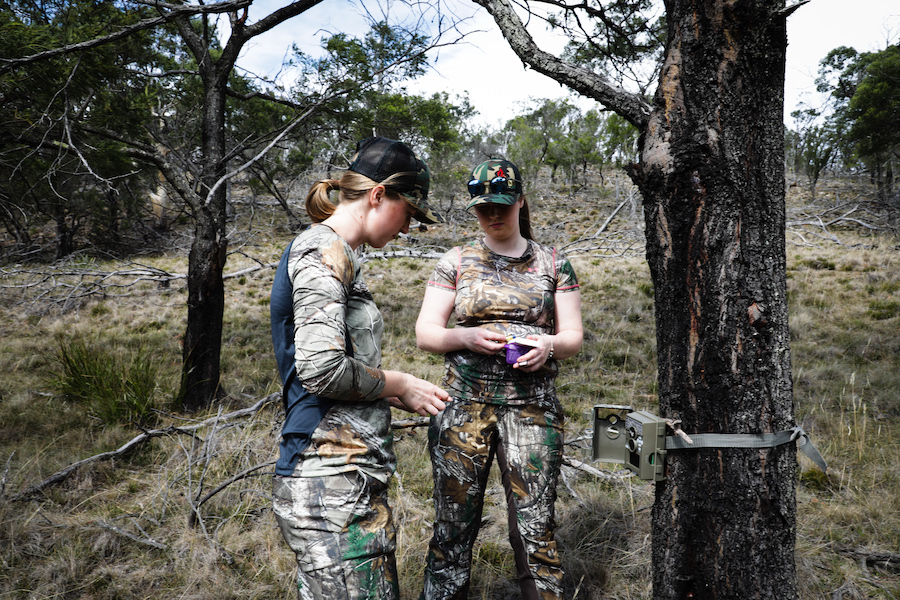 We already know that animals have superior senses to us. They also know the landscape better. They are so in-tune with their natural environment that they are on high alert if they see anything out of the ordinary. You could say the odds are in the animal’s favour, but taking the time to learn about the land you’ll be hunting goes a long way to reducing those odds.
We already know that animals have superior senses to us. They also know the landscape better. They are so in-tune with their natural environment that they are on high alert if they see anything out of the ordinary. You could say the odds are in the animal’s favour, but taking the time to learn about the land you’ll be hunting goes a long way to reducing those odds.
We are not suggesting you need to memorise every leaf and twig in the area you are hunting, but take the time to scout the area – preferably before you hunt it.
Walk the land. What is the landscape like? Is the land muddy, dry, rocky? Are there tripping hazards? What are the best vantage spots? If you are camping, make sure you’re not setting up camp in the middle of a game trail.
Where are the watering holes and food sources in the area? Where do the animals bed down during the day? Pay attention to poo. You can learn a lot about what animals are in the area. Take note of game paths, as they can tell you which way the animals are likely to run if they do get spooked.
Spend time just sitting and watching, and if you can, set up trail cameras to determine long term patterns over one-off behaviours.
Knowing the area not only increases your chances of a successful hunt, it can also reduce your risk of getting hurt or lost.
4. Learn about the animal you are hunting
 If it is important to know the land you’ll be hunting on, it is absolutely critical to learn as much as you can about the animal you’ll be hunting.
If it is important to know the land you’ll be hunting on, it is absolutely critical to learn as much as you can about the animal you’ll be hunting.
What tracks do they leave? What does their poo look like? What are their food sources? What time of day/night are they most active? Do you know the difference between the males and females from a distance? While it might seem obvious when it comes to most deer, this is not always the case. For example, male and female caribou both have antlers. It’s the same for wildebeest, buffalo, some species of antelope, as well as some goats. Can you tell the difference between a young male and an antlerless female? And then there’s all the other species we hunt that don’t have horns at all! Do you know what the ideal size is for that particular species? Is there a minimum legal caliber required to hunt that species? For example, here in Tasmania, the minimum caliber to shoot a fallow deer is a .243. Do you know the best shot placement for an ethical kill?
You also need to learn about what happens after the hunt. Learn how to field dress the particular species of animal and how to skin it. While the basics stay the same between species, there can be some slight changes. Learn how to harvest meat in the field, and how to age the meat afterwards to ensure it is tender and delicious to eat.
While it may seem like a lot to learn, knowing all these things before you get in the field can save you a lot of time and effort, not to mention some very costly mistakes.
5. Find a mentor
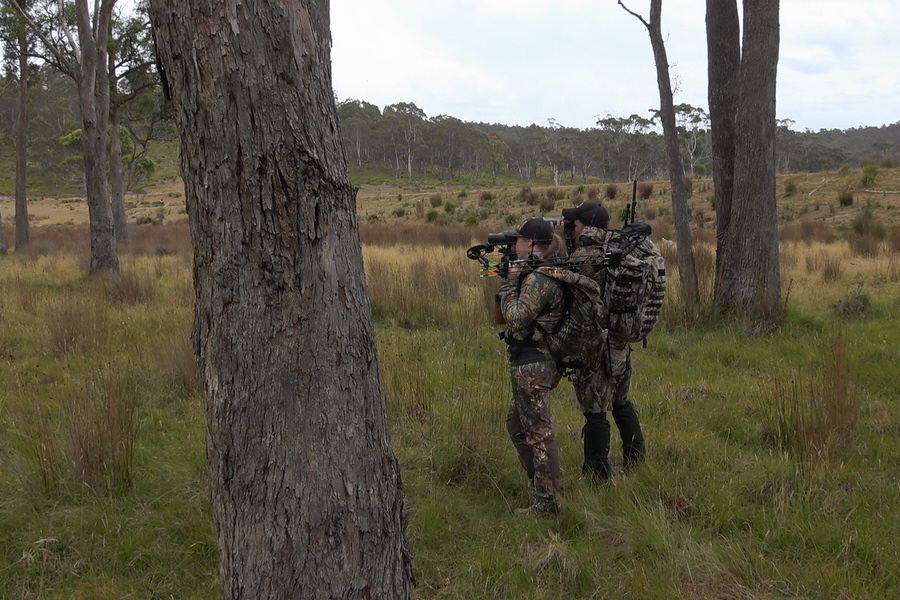 You can learn a lot about hunting through sites like I Am Hunter, or by watching YouTube videos, but a good mentor can really accelerate your learning curve. In the good old days, most hunters were taught to hunt by their parents, older siblings or extended family members. That happens less often these days, but there are still a number of good organisations, like Game Hunters Association of Australia, Australian Deer Association, Fish and Game NZ, or the International Hunter Education Association in the US, who run Hunter Education programs. Or, if there’s a hunter you know and trust who has good habits and good ethics, ask them if they wouldn’t mind showing you the ropes and helping you get started. Just remember that the emphasis in that statement is on the word good! Bad habits and bad ethics are really easy to pick up. If you learn them as a beginner, it will be really hard to overcome them, and it could end up setting the course for the type of hunter you will become.
You can learn a lot about hunting through sites like I Am Hunter, or by watching YouTube videos, but a good mentor can really accelerate your learning curve. In the good old days, most hunters were taught to hunt by their parents, older siblings or extended family members. That happens less often these days, but there are still a number of good organisations, like Game Hunters Association of Australia, Australian Deer Association, Fish and Game NZ, or the International Hunter Education Association in the US, who run Hunter Education programs. Or, if there’s a hunter you know and trust who has good habits and good ethics, ask them if they wouldn’t mind showing you the ropes and helping you get started. Just remember that the emphasis in that statement is on the word good! Bad habits and bad ethics are really easy to pick up. If you learn them as a beginner, it will be really hard to overcome them, and it could end up setting the course for the type of hunter you will become.
Learning to hunt isn’t hard. Like anything, practice makes perfect. The more that you get out there and hunt, the more skills you will learn, and the more that hunting will become second nature to you.
What is I Am Hunter?
I Am Hunter wants to change the way hunting is perceived and to change the conversation from a negative one driven by anti-hunters to a positive one led by hunters.
Our goal is to help hunters become positive role models and ambassadors for hunting, while simultaneously helping non-hunters understand why hunting is important.
You can become a supporter and help us achieve our goal and spread a positive message about hunting with the wider community.
Related content
If you would like to know more about hunting wallabies, kangaroos or deer in Tasmania, check out these related articles and podcasts.
Our other channels
Follow us on Facebook
Follow us on Instagram
YouTube
Subscribe to our YouTube channel.
Get our newsletter
Get our free monthly newsletter direct to your inbox
Listen on iTunes
Listen to our podcast on iTunes.
TV series
Watch I Am Hunter episodes on My Outdoor TV (MOTV)

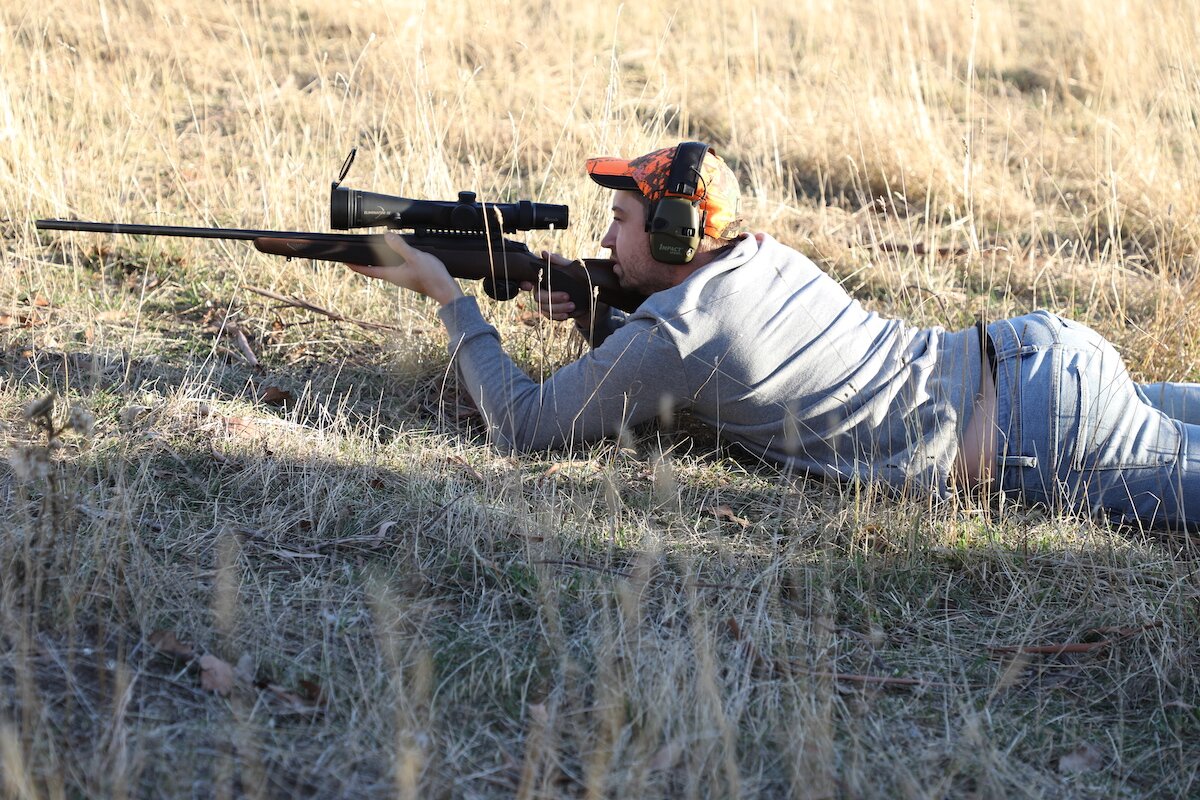
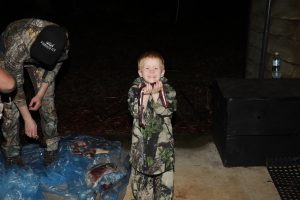
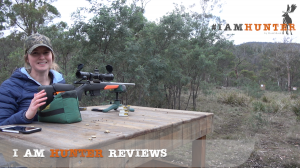
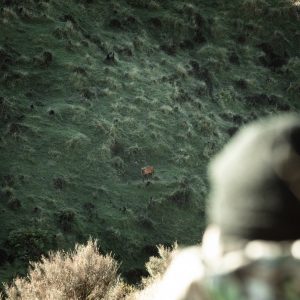
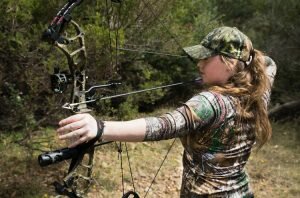


2 thoughts on “5 steps to learn to hunt”